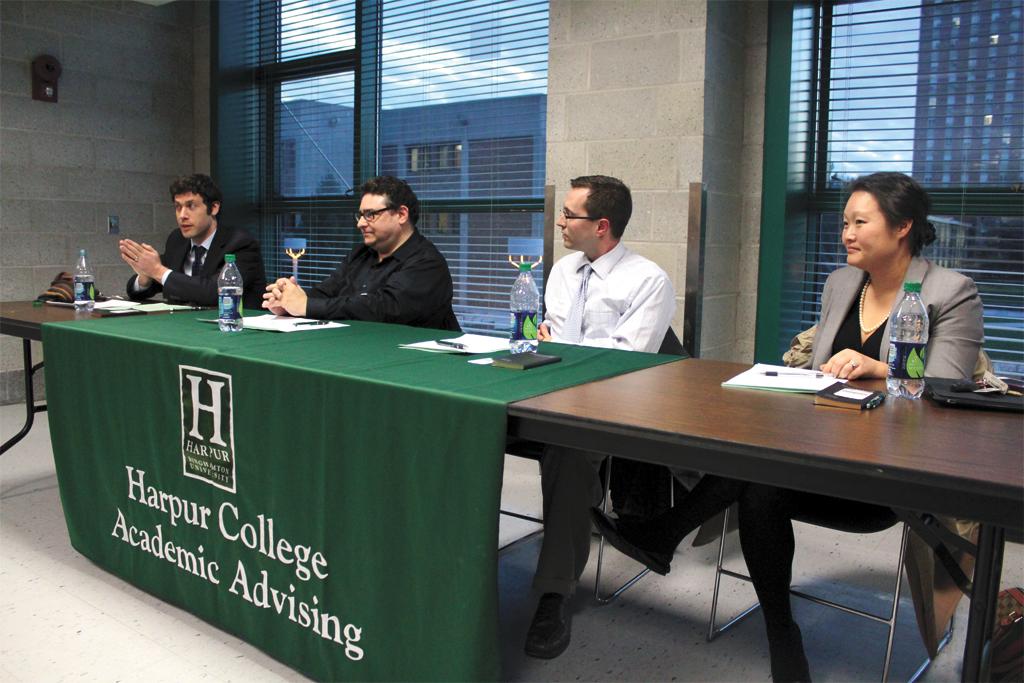
Four communications industry professionals spoke at an event held by the Harpur Academic Advising Office titled “Liberal Arts to Communications” on Saturday, Nov. 19 in New University Union room 324.
“Liberal Arts to Communications” is a seminar series that the Harpur Academic Advising Office has been held for the past three years ago to inform students about how to pursue careers in areas such as education, business and public service with a liberal arts degree, according to Ashley Serbonich, a Harpur adviser.
Lawrence Greenfield, director of Harpur Academic Advising, said a combination of student demand and the lack of a corresponding major at BU led her office to put together the communications seminar.
The panelists — Rich Appel, a columnist and radio personality; Andrew Block, public information officer and executive assistant to Binghamton Mayor Matt Ryan; Suh Neubauer, news director of Fox 40 News; and Ryan Yarosh, assistant director of media and public relations at Binghamton University — discussed their jobs, skill sets and the changing definitions of the field of communications.
Appel and Block said their job was to find relevant information for their audiences and condense it so it is easy to understand.
“Really it entails filtering all of the info that pertains to Binghamton in a user-friendly way and making it available to constituents,” Block said.
Both Neubauer and Appel said their industries — radio and television, respectively — can be fast-paced and unpredictable.
The panelists spoke about social media and its effect on communications and necessary skills for communications professionals in the future.
“The term ‘communications’ has changed over the last decade and more so over the last three or four years with social media,” Neubauer said. “It’s really become a two-way between our viewers and news. They actually became a part of the message.”
Appel said that the radio industry has had to adapt to having a smaller audience.
“It used to be that everyone had a radio in the kitchen,” Appel said. “We had to find new ways to get in front of people’s faces. Each company has to figure out what we want to do.”
Neubauer said that students should not worry too much about the future. Rather, she said, they should be ready to adapt to the industry as it changes.
“It’s more important to have the skills to understand where you need to be,” Neubauer said. “It’s an evolving type … it may not be Twitter in two years and you may have to learn something else.”
Neubauer also spoke about the workload facing journalists and others in the industry at the entry level.
“It’s easy to burn out especially as you get into a new job,” Neubauer said. “There are so many platforms you’re expected to know.”
Yarosh said that storytelling is essential to communications.
“It’s always changing, but a big part is that you have to tell a good story,” Yarosh said. “The one thing Binghamton makes us is it makes us good writers. They can be so good with Twitter. But they still have to be a good writer.”
The panelists also discussed their inspirations and why they continued to pursue careers in communications.
Block said he has always wanted to write stories. Neubauer recalled watching “60 Minutes” with her family as a child. Appel’s inspiration came from a childhood love of radio.
“I got hooked on the radio and anybody who said anything in that box was really cool,” Appel said. “And I wanted to be that guy in the box.”


